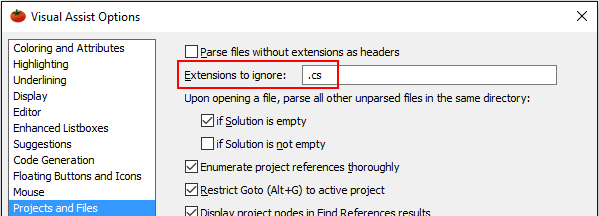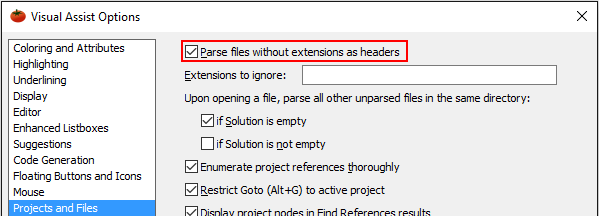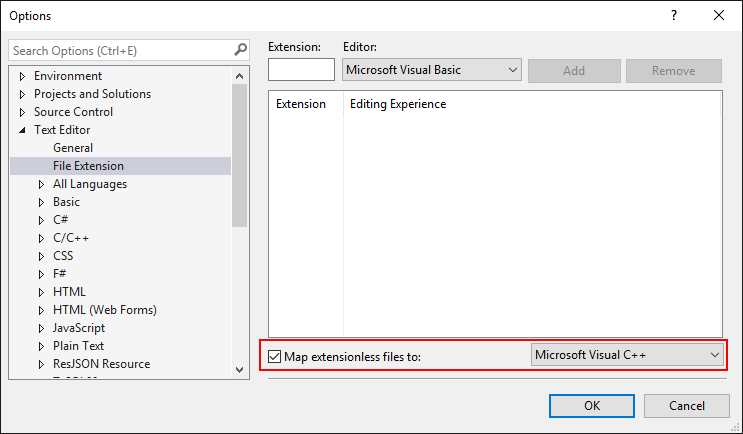You can configure Visual Assist to accommodate non-standard file extensions. Specifically, you can make Visual Assist:
- ignore files of any extension (standard or otherwise)
- allow header files without extensions
- allow C/C++ files with a non-standard extension
Ignore File Extensions
Ignore files with a specific extension by identifying the extension in the options dialog for Visual Assist. Separate multiple extensions with semicolons.

If you have a text editor open to a file you want Visual Assist to ignore, reopen the file after updating the options dialog.
Allow Header Files Without Extensions
Make Visual Assist consider files without extensions to be C/C++ header files by enabling the parsing of files-without-headers in the options dialog for Visual Assist.

You should also make the IDE to consider the same by mapping extension-less files to Visual C++ in the options dialog for the IDE.

Allow C/C++ Files with a Non-Standard Extension
The process of configuring Visual Assist and the IDE to support non-standard extensions varies by IDE and requires updating of the registry. The steps are documented in the Knowledge Base for Visual Assist.
Registry Settings